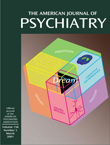Schizophrenia and Pathological Gambling
Ms. A was a 31-year-old divorced woman with schizophrenia, nicotine dependence, and pathological gambling. Her symptoms of paranoia and disorganized thought began at age 19, prompting hospitalization. Since then she had been treated primarily with oral haloperidol, 5–10 mg/day. Her parents were gamblers who had frequented casinos and held poker games since her childhood. Ms. A had attended bingo games with her mother since age 8 and had continued playing throughout adulthood. She first played lottery “scratch-off” games at age 12 and continued playing into her 20s, spending up to $20 per week. After the opening of a major local casino when Ms. A was in her mid-20s, she began playing slot machines and table games, losing up to $500 a day on multiple occasions. Repeatedly, her gambling losses required her to borrow money from friends and family members in order to afford rent and food.Ms. A reported gambling to be pleasurable; when under stress, she said, she gambled to escape or feel excitement. During an unplanned pregnancy, she increased her gambling, losing approximately $2,000 at casinos and more than $150 on lottery tickets. Four months after giving birth, she was hospitalized with paranoia and disorganized behavior. She had stopped taking haloperidol for a month because of an inability to afford her medications because of her gambling losses. She could not afford rent, food, or child care, prompting evaluation by child protective services. After her hospitalization, her antipsychotic treatment was changed to oral olanzapine, 10 mg every night at bedtime; it gave her good control of her psychotic symptoms. She has not gambled since her hospital discharge. She recently scored 14 on the South Oaks Gambling Screen and 10 (lifetime) and 5 (past year) on the National Opinion Research Center (NORC) DSM-IV Screen for Gambling Problems (5 or more on either corresponds to pathological gambling).
References
Information & Authors
Information
Published In
History
Authors
Metrics & Citations
Metrics
Citations
Export Citations
If you have the appropriate software installed, you can download article citation data to the citation manager of your choice. Simply select your manager software from the list below and click Download.
For more information or tips please see 'Downloading to a citation manager' in the Help menu.
There are no citations for this item
View Options
View options
PDF/ePub
View PDF/ePubGet Access
Login options
Already a subscriber? Access your subscription through your login credentials or your institution for full access to this article.
Personal login Institutional Login Open Athens loginNot a subscriber?
PsychiatryOnline subscription options offer access to the DSM-5-TR® library, books, journals, CME, and patient resources. This all-in-one virtual library provides psychiatrists and mental health professionals with key resources for diagnosis, treatment, research, and professional development.
Need more help? PsychiatryOnline Customer Service may be reached by emailing [email protected] or by calling 800-368-5777 (in the U.S.) or 703-907-7322 (outside the U.S.).

